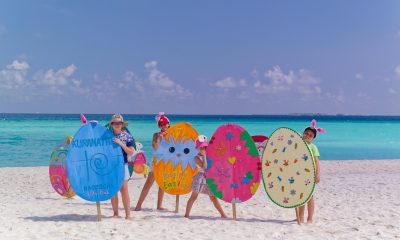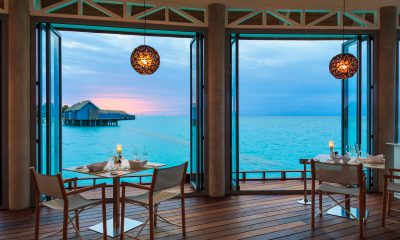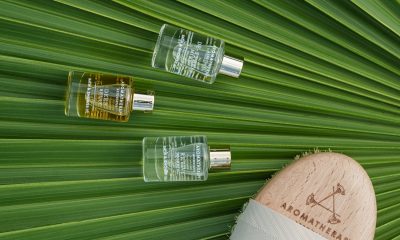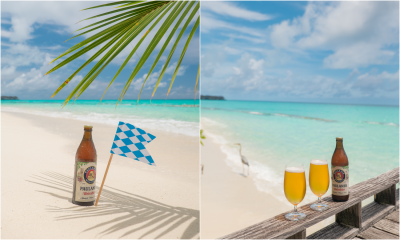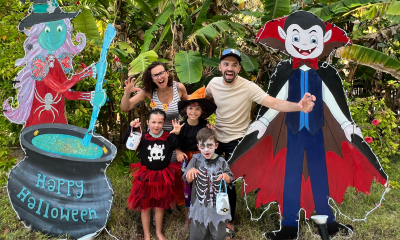Action
Paradise Exists

By Lauren Glendenning
In May, that picture became a reality — and the lavish beauty I experienced while there trumped my wildest expectations.
My boyfriend, Ryan, and I booked flights to the Maldives, an Indian Ocean nation made up of 1,190 small coral islands, about 100 of which are resort islands.
When we arrived, we were stunned — not because it looks any different than it should or than we expected but because it’s so beautiful that we almost couldn’t believe it exists.
It’s surreal because it’s fabled and for good reason. This is a place where honeymooners go, where the rich and famous go on holiday, where couples fall in love with each other all over again.
The Maldives is made up of atolls, which are coral islands that encircle lagoons. The climate is warm, as the country is just north of the equator, and tropical. The hundreds of islands are no more than 6 feet above sea level, covering almost 56,000 square miles.
Traveling there from the United States isn’t easy — perhaps that’s why so many people looked at us puzzled when we told them we had just been there.
The Maldives? Where is that?
And the people who could likely point to it on a map would react in awe because we had gone there, as if Americans couldn’t ever possibly go to the Maldives and that our doing so had broken some unspoken law about where we’re allowed or expected to travel.
Flying from Denver to the Indian Ocean takes time, patience and maybe even a couple of sleeping aids (get a prescription from a travel doctor, or take advantage of free cocktails aboard international flights). It’s two hours to Los Angeles, where you can then board Emirates Airlines’ 16-hour nonstop to Dubai. After a layover in Dubai, which we chose to extend to four days (more on that experience in an upcoming article), then it’s just more than four hours to the Maldives capital of Male. All in all, that’s about 20 hours in the air, not including stops.
From there, depending on which island you’re heading to, you’ll need to board a seaplane and fly for anywhere from 10 minutes to more than an hour. To get to Kuramathi Island, where we stayed, the seaplane took just 15 minutes. From the seaplane, which is flown by barefoot pilots wearing shorts — an appropriate touch — you can see the beauty of the coral islands surrounded by turquoise waters so clear you can practically snorkel from the air.
The islands aren’t solely known for the beaches and water, though — there are also incredible lush landscapes, and this is especially true on Kuramathi Island.
When you arrive, the first thing you notice isn’t the pristine, white-sand beaches that are everywhere. It’s the tropical jungle that splatters an already gorgeous canvas with breathtaking trees, plants and flowers. You can get lost in this flourishing forest — the island feels like a botanical garden, one stocked with bats, hermit crabs, banyan trees and those over-water villas that I had been dreaming about for years.
Any American adventurous enough to take their beach vacation somewhere outside of our go-to destinations such as Mexico, Florida, Hawaii or Costa Rica can do it with just a little extra time and money. The reward is beyond worth it.
It’s hard to imagine staying in another type of room at Kuramathi, or any other Maldivian island, although beach and garden villas appeared lovely, as well.
I think it’s because we traveled all this way that we wanted to sleep on top of the ocean and enjoy every second of being there. At night, when the stars shine brighter than they do during the darkest nights in Vail, we could see the glimmer bounce off the sea and the sound of nothing more than a few small waves splashing beneath. There’s nothing like it.
You could sit out there for hours — and we did — listening to it. Just total peace, and if you’re lucky enough to catch it during or near a full moon, the light is just enough so that you can see where you are — in this picturesque paradise halfway around the world, where nothing, not even updating your Facebook status to brag to your friends about where you are, matters.
Kuramathi is an island with it all, too. Those looking for a pampered holiday can visit the spa — which sits on the beach so you can hear the sound of the ocean as you enjoy your spa treatments — or any one of the island’s restaurants (there are nine). You can relax on the beach while sipping on a cocktail from the resort’s extensive drink list, or you can choose ultimate privacy by sunbathing or snorkeling right at your villa.
Foodies will find this island more than adequate, too. Basic all-inclusive packages include three buffet meals per day, offering food that spans cuisine from Japan to Europe to Russia. The Sri Lankan and Maldivian food, however, was by far the most sensational.
For the more adventurous and active traveler, Kuramathi has a watersports shop where you can go windsurfing or stand-up paddleboarding. There are water kayaks available, too, and private fishing excursions.
Snorkeling trips, either with a group or private, offer trips out to nearby reefs — although the “house reef” surrounding the island is accessible by a short swim from the villas. It was the house reef where we saw some of the most colorful fish, as well as black tip reef sharks, sea turtles and stingrays.
The scuba experience is once in a lifetime, too. The Rasdhoo Atoll Divers, located on the island, offer everything from diving courses to certification to expert dives. They go out of their way to make you feel comfortable — Ryan’s first dive since getting certified at Beaver Divers was here, and the instructors were there for him every step of the way.
Regardless of what kind of traveler and vacationer you are, Kuramathi — and the Maldives in general — will blow your mind in terms of what’s possible in an island vacation.
Paradise has been found — it’s sitting right there in the Indian Ocean.
Editor’s Note: Lauren Glendenning is the Assistant Manager Editor of Vail Daily (Colorado, USA). This article was first published on Vail Daily and we thank Lauren for permission to republish.
Action
Sun Siyam Olhuveli invests in staff wellbeing with upgraded sports facilities
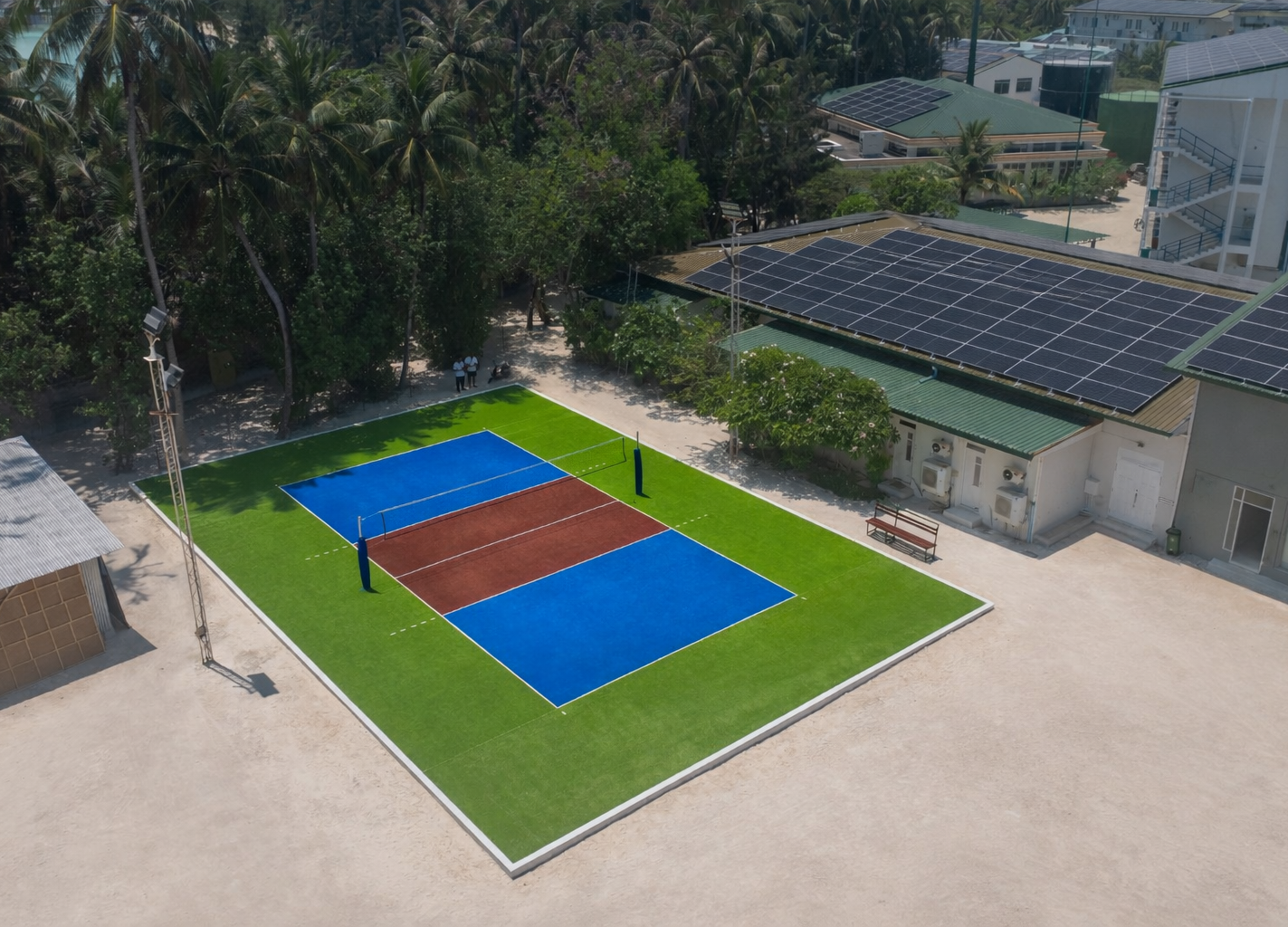
Sun Siyam Olhuveli has unveiled newly upgraded volleyball and futsal grounds for team members, reaffirming its commitment to employee wellbeing while advancing responsible, future-focused operations. The renovated volleyball grounds were officially inaugurated on 14 February, while the upgraded futsal ground opened earlier this year—together creating dedicated spaces for recreation, connection, and healthy competition across the island.
Designed to encourage regular physical activity and camaraderie beyond the workplace, the improved sports facilities represent a thoughtful investment in social infrastructure. They reflect a belief that wellbeing is fundamental to long-term performance, nurturing morale, teamwork, and a strong sense of belonging among team members.
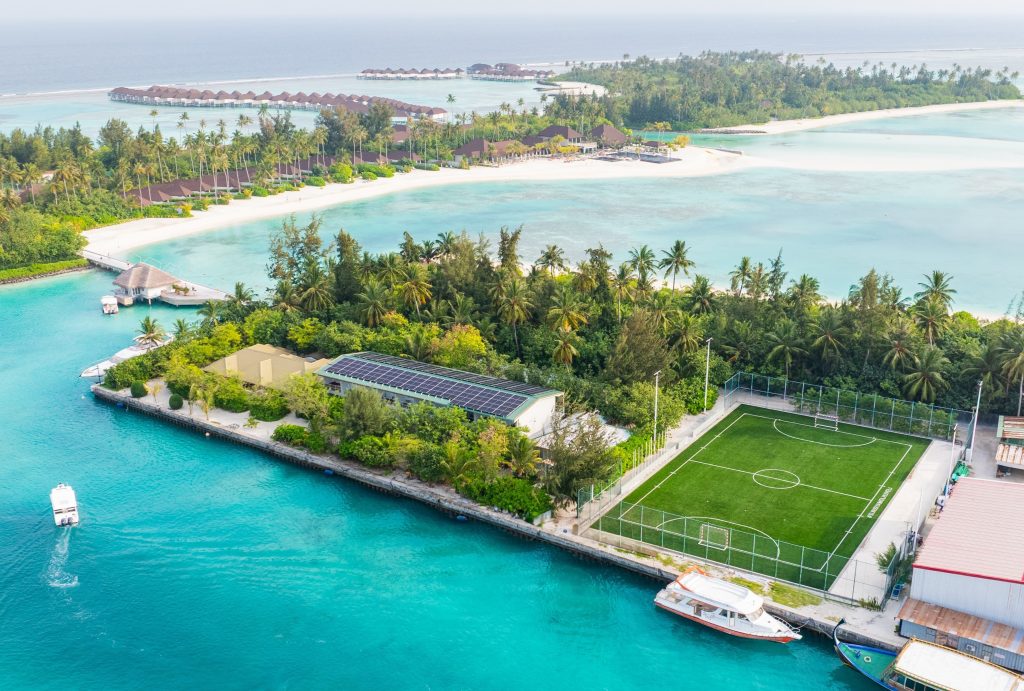
Alongside these developments, the resort has implemented NO BIN DAY every Tuesday, a practical initiative aimed at minimising food waste across operations. By encouraging mindful planning and responsible consumption, the initiative challenges teams to rethink habits around food—transforming sustainability into a shared, everyday discipline.
“Taking care of our people and the environment must go hand in hand. By investing in spaces that support our team’s wellbeing and introducing simple disciplines like NO BIN DAY, we are building a culture where responsibility is lived every day—naturally, collectively, and with purpose,” said Hassan Adil, General Manager of Sun Siyam Olhuveli.
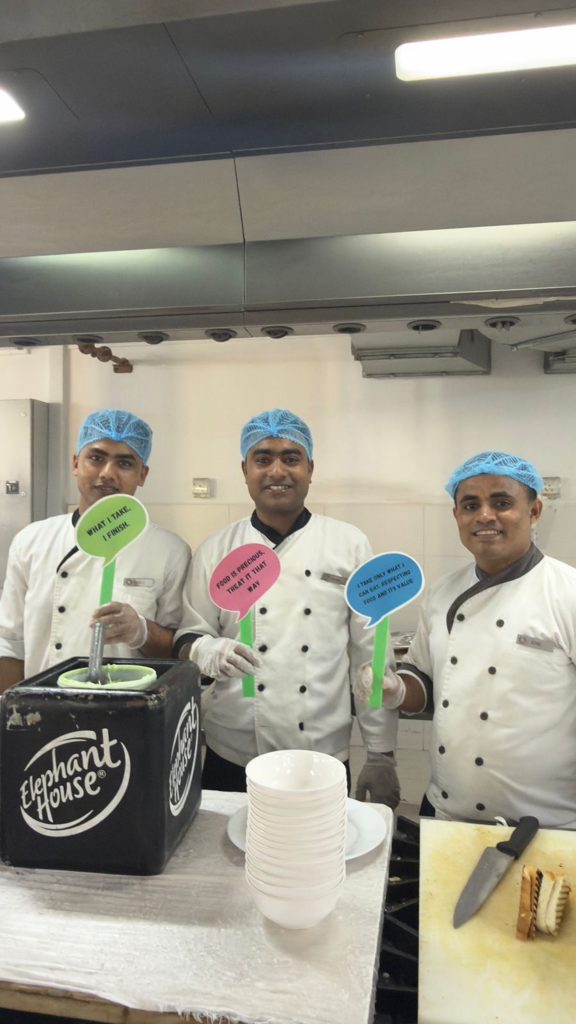
Both initiatives form part of Sun Siyam Care, the group’s corporate social responsibility platform, and align with the Social Infrastructure and Responsible Consumption and Production pillars under the GDS framework. Together, they reflect a people-first approach to sustainability—where everyday actions create lasting impact for teams, operations, and the wider community.
Sun Siyam Care is committed to creating a positive impact for people, communities, and the environment through responsible operations, social investment, and long-term sustainability actions across its destinations in the Maldives and Sri Lanka.
Guests are encouraged to learn more about these initiatives by visiting the Sun Siyam Care website at sunsiyam.com/sun-siyam-care.
Action
Sheraton Maldives Full Moon celebrates sixth anniversary of Reefscapers collaboration
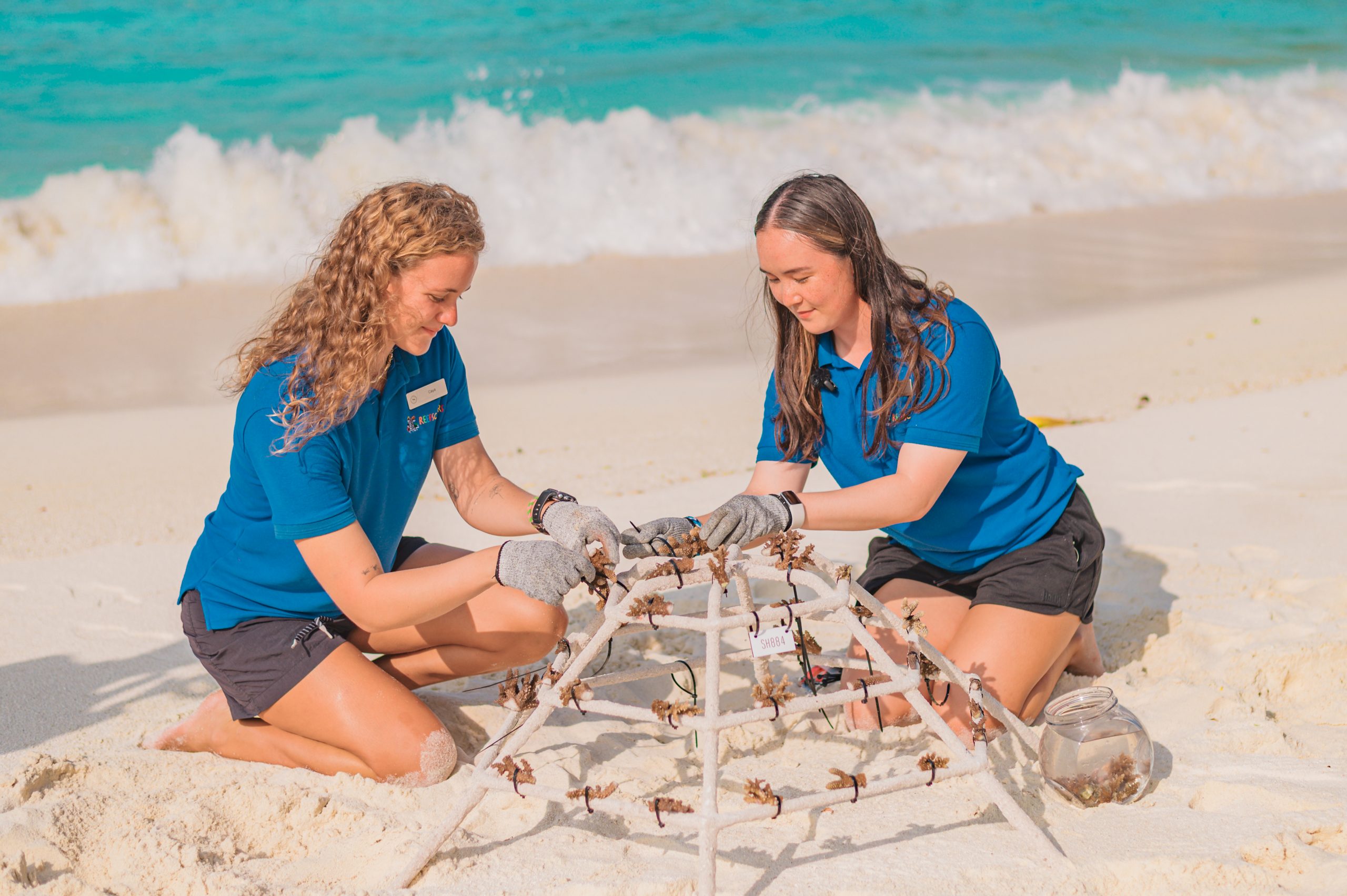
Sheraton Maldives Full Moon Resort & Spa marks the sixth anniversary of its partnership with Reefscapers on February 19, 2026, reaffirming its commitment to protecting and restoring the Maldives’ fragile reef ecosystems. Since launching the partnership in 2020, the resort and Reefscapers have worked together to restore coral habitats, support marine biodiversity, and engage guests in meaningful conservation experiences. The milestone also marks one year since the successful relocation of approximately five tons of coral to the resort’s house reefs — one of the partnership’s most significant conservation initiatives.
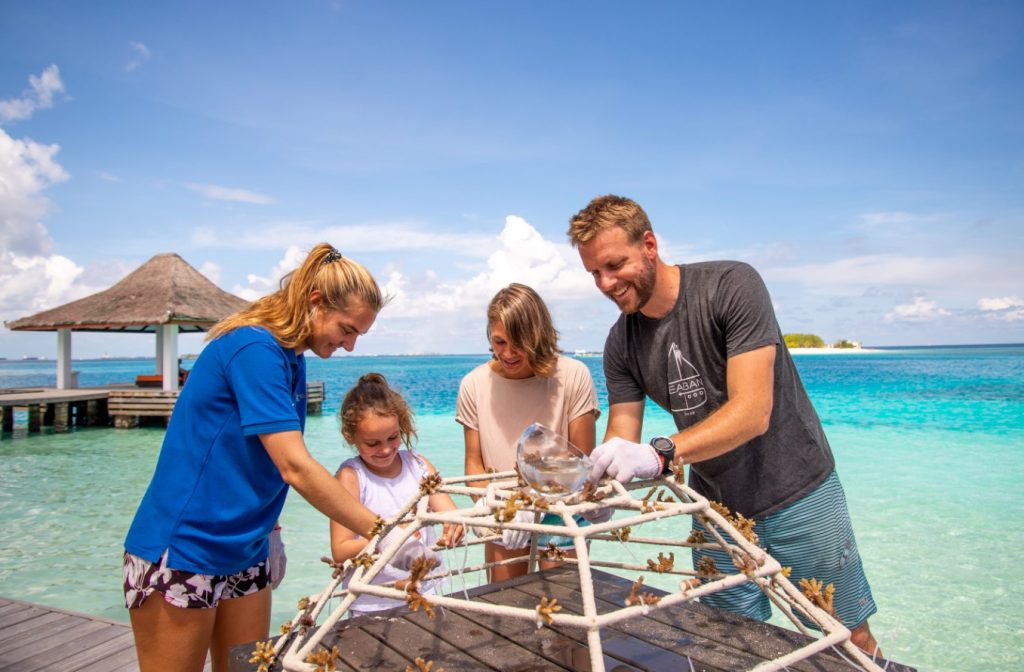
Over the past six years, the partnership has become a defining pillar of the resort’s sustainability journey, blending scientific restoration with purposeful guest engagement. To date, the initiative has resulted in the planting of 898 coral frames, supporting approximately 33,000 coral colonies now growing across the restoration sites. Through coral propagation, reef monitoring, and awareness programmes, these efforts continue to regenerate reef structures while deepening understanding of the essential role coral ecosystems play in sustaining marine life and protecting coastlines. Each thriving coral frame reflects a shared dedication to preserving the natural wonders that make the Maldives one of the world’s most extraordinary marine destinations.
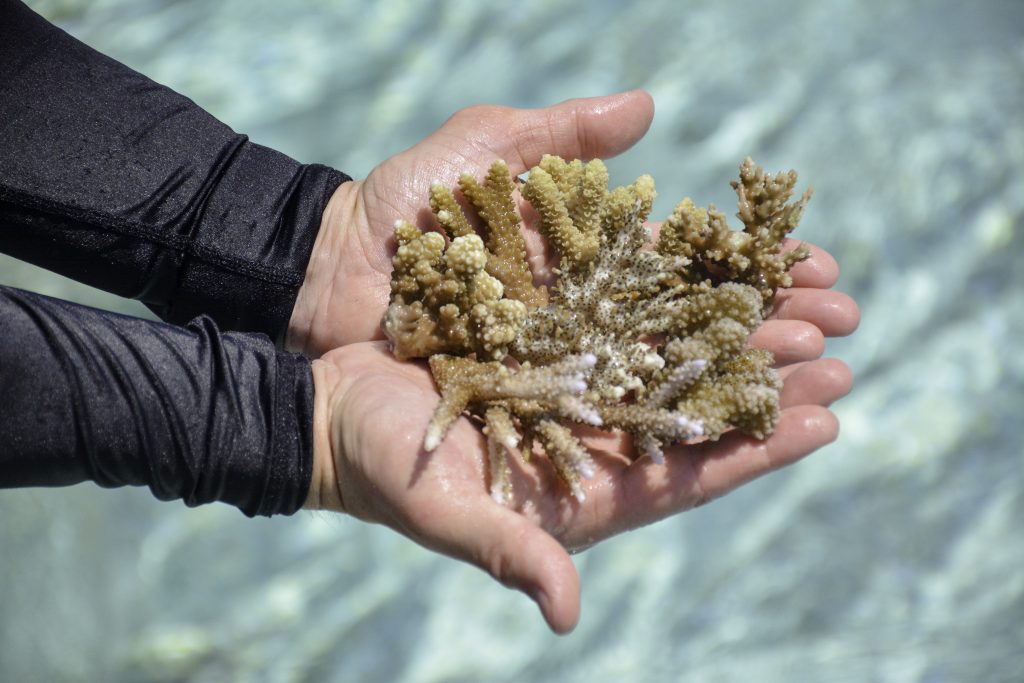
“What makes this partnership special is seeing how small, consistent actions turn into real change underwater. Watching the relocated corals settle, survive, and begin to grow over the past year has been incredibly rewarding for us and the guests who return and witness how they’ve helped restore a living reef,” shares Katelyn, the resort’s Marine Biologist.
A defining achievement of the collaboration has been the coral relocation project, which carefully transferred coral colonies from Ras Malé, also known as the Maldives Eco City, to the resort’s dedicated restoration site, safeguarding them from potential threats linked to land reclamation activities in the Fushi Dhiggaru Lagoon. One year on, these corals continue to flourish beneath the surface, strengthening reef resilience and contributing to the long-term health of the surrounding ecosystem.
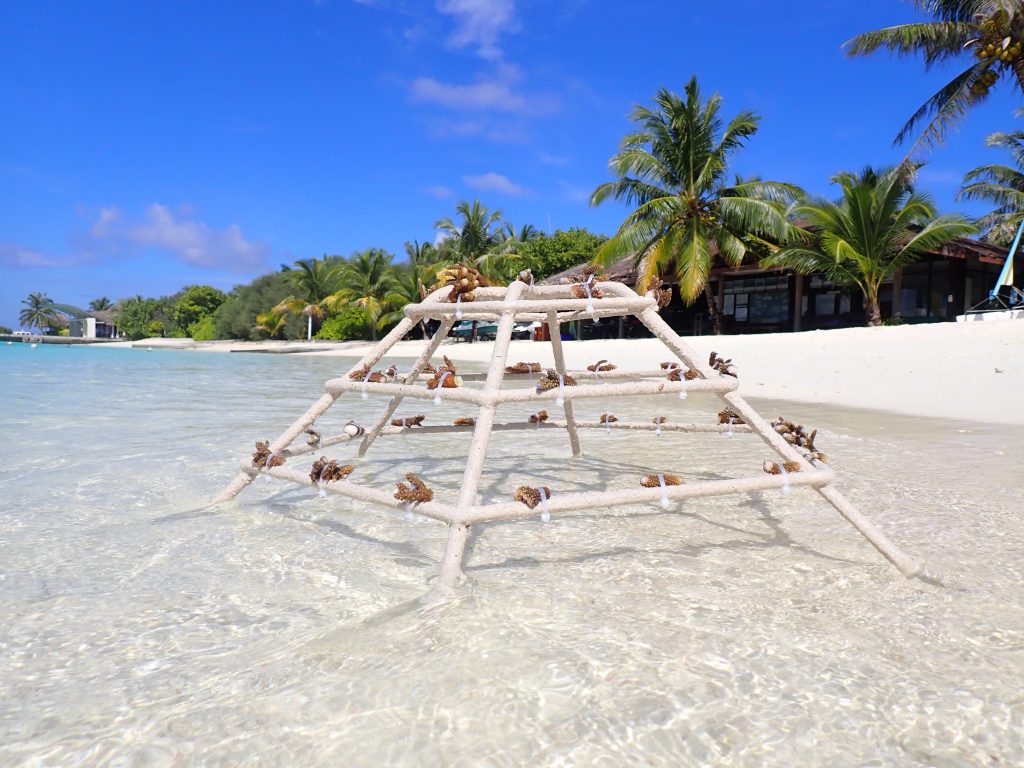
At the heart of the partnership lies the resort’s Adopt a Coral programme, part of the Good Travel with Marriott Bonvoy initiative, which encourages guests to travel with intention through meaningful environmental experiences. Through this hands-on activity, visitors can adopt and name a coral frame while learning directly from marine experts about coral ecology and the importance of protecting marine habitats.
To deepen this connection beyond the stay, guests receive growth updates on their adopted corals every six months, allowing them to follow the progress of their living contribution to the reef. As these corals grow over time, they become enduring symbols of renewal and shared responsibility, transforming a holiday memory into a lasting environmental legacy, and reflecting how travel can positively support local ecosystems and communities.
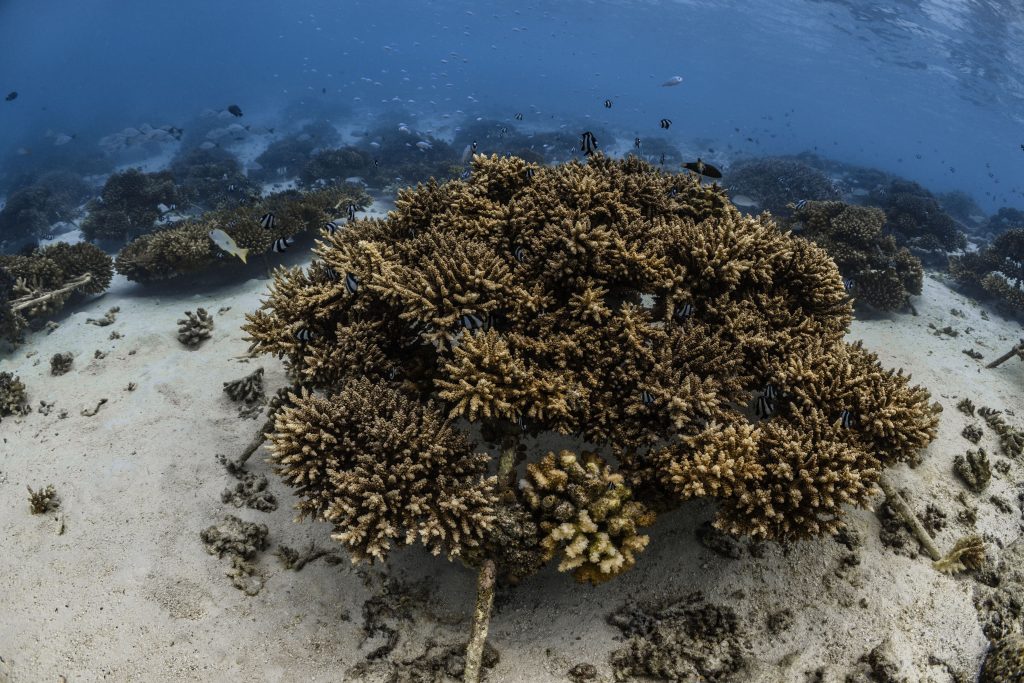
“Our island is surrounded by a remarkable marine environment, and protecting it is a responsibility we take seriously. Our partnership with Reefscapers reflects our belief that hospitality should go hand in hand with stewardship. Seeing the reef restoration progress over the past six years, and the involvement of our guests and associates in that journey, makes this anniversary especially meaningful for all of us,” comments Greg Allan, General Manager of Sheraton Maldives Full Moon Resort & Spa.
Through its continued collaboration with Reefscapers, Sheraton Maldives Full Moon Resort & Spa remains dedicated to advancing marine conservation while creating purposeful guest experiences rooted in sustainability, education, and connection to nature.
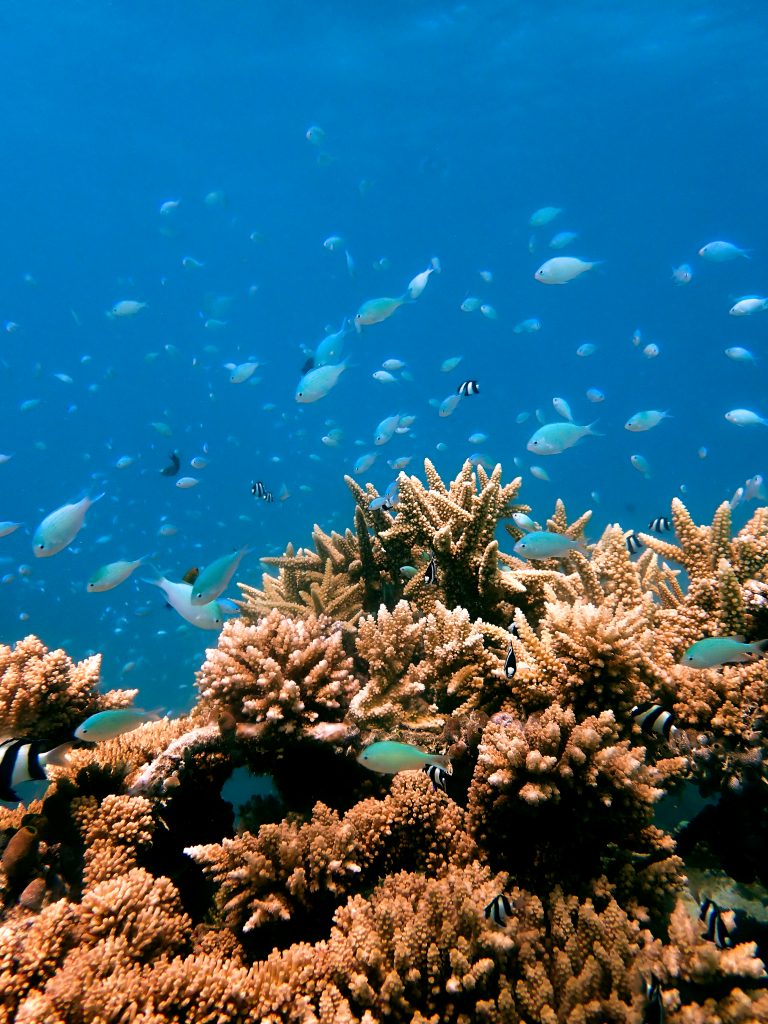
To discover more about the resort’s sustainability initiatives, join the Adopt a Coral programme, or plan a stay that supports reef conservation, visit sheratonmaldives.com or contact the reservations team at Sheraton.Maldives@sheraton.com.
Action
Sun Siyam Vilu Reef unveils expanded marine excursion portfolio

Sun Siyam Vilu Reef, part of the Sun Siyam Privé Collection, has introduced an expanded portfolio of water-based experiences designed to showcase the natural environment and marine life of the surrounding atolls. The enhanced programme combines exploration, activity and moments of calm, offering guests new ways to experience the Maldives through curated ocean journeys and personalised excursions.
Building on established activities such as Jet Car rides, SeaBob adventures and windsurfing, the resort has expanded its watersports offering to include private speedboat journeys and bespoke marine experiences. These additions are tailored for small groups seeking intimate and meaningful encounters with the ocean.
Available daily from the resort’s Watersports Centre, the new private speedboat excursions provide a personalised way to explore the hidden marine sites of Dhaalu Atoll. Designed for one to four guests, each journey offers flexibility and individual attention. Guests may choose from four-hour, five-hour or full-day itineraries, all of which include a freshly prepared barbecue lunch. From coral gardens to secluded sandbanks, the excursions highlight the region’s diverse marine landscapes.
The programme’s centrepiece is the Full Day Adventure Trip, which offers an extended exploration of key marine locations. Highlights include the Coral Garden, known for its biodiversity and reef formations; Turtle Point, where sea turtles are frequently sighted; and Nurse Shark Point, which provides opportunities to observe nurse sharks in their natural environment. The experience concludes with a beachside lunch on a private sandbank, set against uninterrupted views of the Indian Ocean.
For guests seeking a balance between activity and relaxation, the Waves of Adventure and Calmness experience combines a private two-hour snorkelling safari or Jet Ski safari with a full-body massage at the resort. The programme is designed to transition smoothly from ocean exploration to restorative island time, reflecting the relaxed pace that characterises Sun Siyam Vilu Reef.
As part of the Sun Siyam Privé Collection, Sun Siyam Vilu Reef continues to focus on personalised service and experiences rooted in the natural setting of the Maldives. Through its expanded watersports offering, the resort invites guests to engage with the marine environment while enjoying a sense of privacy, discovery and connection to the Maldivian seascape.
-
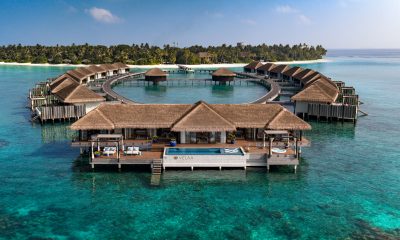
 News1 week ago
News1 week agoRefined overwater vision: Velaa Private Island’s upgraded Ocean Pool House
-

 Cooking1 week ago
Cooking1 week agoA spring of flavours: Nowruz dining series at JW Marriott Maldives Resort & Spa
-
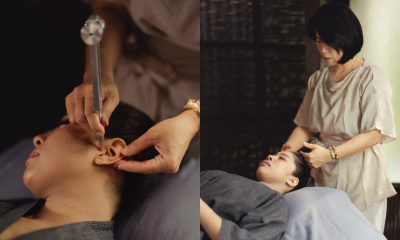
 Featured1 week ago
Featured1 week agoYoko Kawaguchi to lead holistic wellness residency at Vakkaru Maldives
-
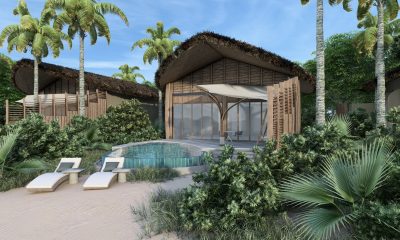
 News7 days ago
News7 days agoPulse Hotels & Resorts unveils Aura Maldives, a mindful luxury sanctuary
-
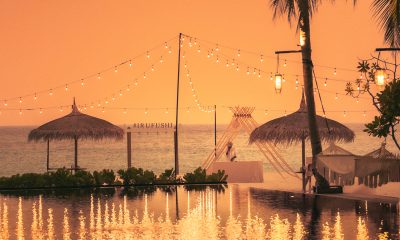
 News1 week ago
News1 week agoSun Siyam Iru Fushi sets new nenchmark with 24 Hour Premium All Inclusive Dine Around
-
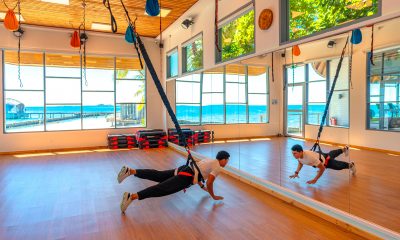
 Fitness1 week ago
Fitness1 week agoOUTRIGGER Maldives Maafushivaru launches expanded wellness programming for 2026
-
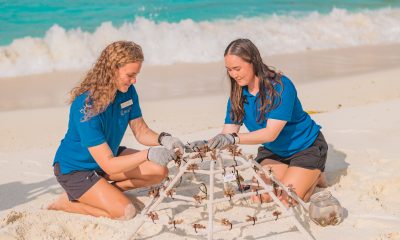
 Action1 week ago
Action1 week agoSheraton Maldives Full Moon celebrates sixth anniversary of Reefscapers collaboration
-
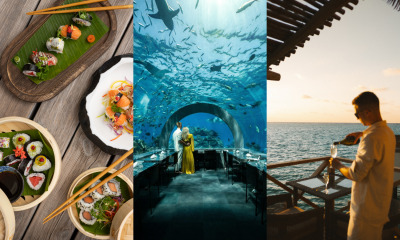
 Featured1 week ago
Featured1 week agoYou & Me Maldives unveils curated Premium All Inclusive programme






